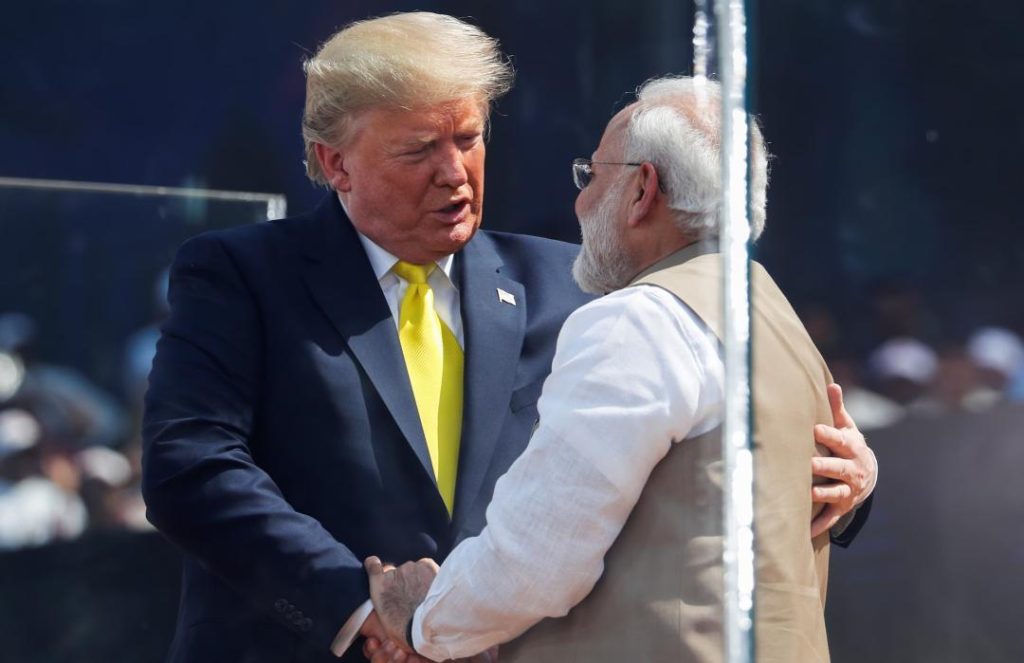
Trump & PM Modi should hold direct talks on ‘urgent priority’: Ex-US envoy Nikki Haley
The bilateral ties between India and the United States have been experiencing a rough patch lately, with tensions escalating over the imposition of 50% tariff on certain products by the Indian government. Amidst this backdrop, a prominent Republican leader and former US envoy to the United Nations, Nikki Haley, has called for direct talks between President Donald Trump and Prime Minister Narendra Modi to mend the relationship and address the pressing issues between the two nations.
In an interview with a leading news agency, Haley emphasized the importance of the partnership between India and the US, terming it a “no-brainer” to counter the growing influence of China in the region. She underscored the need for the two leaders to engage in direct talks to reverse the downward spiral in their relationship and address the concerns of both sides.
“The most urgent priority should be to reverse the downward spiral, which will require direct talks between President Trump and PM Modi,” Haley said, stressing the importance of dialogue and cooperation in resolving the existing issues. Her statement comes at a time when the India-US relationship is facing its most significant test in recent years, with the imposition of tariff on certain Indian goods by the US government and retaliatory measures taken by India.
Haley’s call for direct talks between Trump and Modi assumes significance in the context of the ongoing trade tensions between the two nations. The US government has imposed tariffs on over $40 billion worth of Indian goods, including aluminum, steel, and dairy products, citing national security concerns. India, in turn, has imposed retaliatory tariffs on over $240 million worth of US goods, including apples, almonds, and walnuts.
The trade tensions have not only affected the bilateral trade between the two nations but have also impacted their strategic partnership. Despite being two of the largest democracies in the world, India and the US have had a complex relationship marked by periods of cooperation and tension.
However, in recent years, the relationship has gained significant momentum, with the two nations cooperating closely on a range of issues, including defense, counter-terrorism, and economic development. The partnership has been driven by shared strategic interests, including the need to counter the growing influence of China in the region.
Haley’s call for direct talks between Trump and Modi is a recognition of the importance of this partnership and the need to address the existing issues to maintain the momentum. She emphasized that the partnership between India and the US is not just a transactional relationship but a strategic one that requires sustained engagement and cooperation.
In her interview, Haley also highlighted the need for India to address the concerns of the US on issues such as intellectual property rights, data localization, and market access. She emphasized that these issues are critical to the US companies operating in India and need to be addressed to maintain the confidence of American businesses in the Indian market.
At the same time, Haley acknowledged the concerns of India on issues such as the H-1B visa program and the protection of its interests in the US market. She emphasized the need for the two nations to engage in a dialogue to address these concerns and find mutually acceptable solutions.
Haley’s statement has been welcomed by many in India, who have been calling for a more nuanced approach to the India-US relationship. They argue that the partnership between the two nations is critical to India’s economic development and national security, and requires sustained engagement and cooperation to overcome the existing challenges.
In conclusion, Nikki Haley’s call for direct talks between Trump and Modi is a recognition of the importance of the India-US partnership and the need to address the existing issues to maintain the momentum. The partnership between the two nations is a “no-brainer” to counter the growing influence of China in the region, and requires sustained engagement and cooperation to overcome the existing challenges.
Sources:



